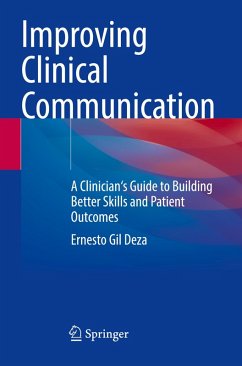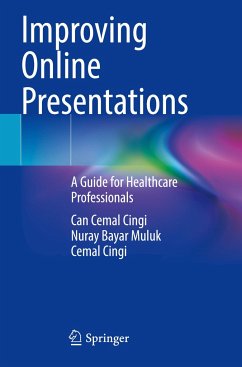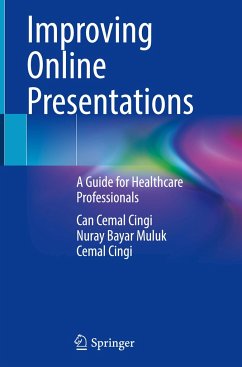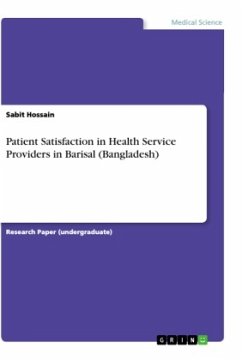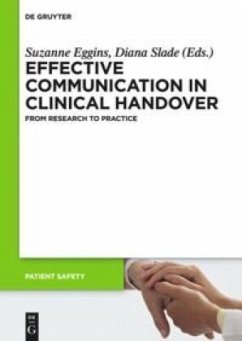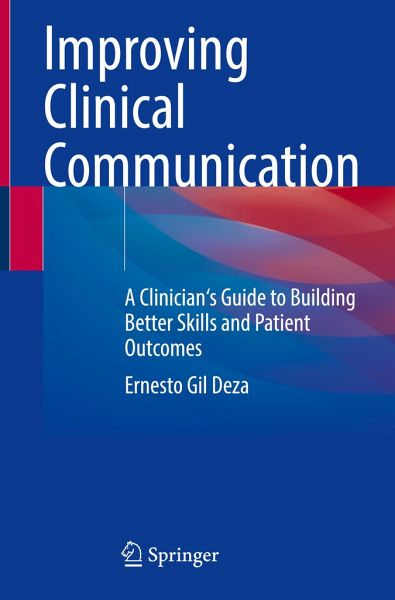
Improving Clinical Communication
A Clinician's Guide to Building Better Skills and Patient Outcomes
Versandkostenfrei!
Versandfertig in 1-2 Wochen
105,99 €
inkl. MwSt.
Weitere Ausgaben:

PAYBACK Punkte
53 °P sammeln!
This is a book about medical communication. Communication is a skill, as such it is learnable and can be refined. Between what we learn in college and clinical practice there is a gap regarding communication with patients and their families that many health professionals want to fill. Thus, the goal of this book is to encourage readers to develop their communication skills in patient care.Chapters cover the possible therapeutic origin of the human word, the placebo effect of the medical word, the distinction between information and communication, and the importance of empathy while communicati...
This is a book about medical communication. Communication is a skill, as such it is learnable and can be refined. Between what we learn in college and clinical practice there is a gap regarding communication with patients and their families that many health professionals want to fill. Thus, the goal of this book is to encourage readers to develop their communication skills in patient care.
Chapters cover the possible therapeutic origin of the human word, the placebo effect of the medical word, the distinction between information and communication, and the importance of empathy while communicating with patients. An overview of the medical words throughout history up to our current practice is presented. In addition, the content helps to develop a strategy for nonverbal communication and to analyse the impact of empathy on communication and patient satisfaction. Current topics such as special needs for LGBTQ patient care, telehealth and virtual communication are also featured in this book.
Knowing how to communicate is healthy not only for the patient but also for the doctor. Therefore, the prevention of medical burnout through adequate communication, both in routine practice, and with patients with special needs, as well as in telemedicine is also discussed.
Finally, the author addresses a personal and non-transferable task: each individual must build their own toolbox for communication - the stories, the anecdotes, the metaphors, the silences with which each of the readers will use to communicate with their patients.
The aim of this book is to bridge a gap between the graduate and postgraduate training for dealing with information and problems in communicating during clinical practice. Since it is never too late to acquire or improve our communication skills, this work will be a useful and valuable resource for any health professional interested in the subject.
Chapters cover the possible therapeutic origin of the human word, the placebo effect of the medical word, the distinction between information and communication, and the importance of empathy while communicating with patients. An overview of the medical words throughout history up to our current practice is presented. In addition, the content helps to develop a strategy for nonverbal communication and to analyse the impact of empathy on communication and patient satisfaction. Current topics such as special needs for LGBTQ patient care, telehealth and virtual communication are also featured in this book.
Knowing how to communicate is healthy not only for the patient but also for the doctor. Therefore, the prevention of medical burnout through adequate communication, both in routine practice, and with patients with special needs, as well as in telemedicine is also discussed.
Finally, the author addresses a personal and non-transferable task: each individual must build their own toolbox for communication - the stories, the anecdotes, the metaphors, the silences with which each of the readers will use to communicate with their patients.
The aim of this book is to bridge a gap between the graduate and postgraduate training for dealing with information and problems in communicating during clinical practice. Since it is never too late to acquire or improve our communication skills, this work will be a useful and valuable resource for any health professional interested in the subject.



